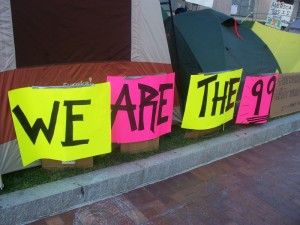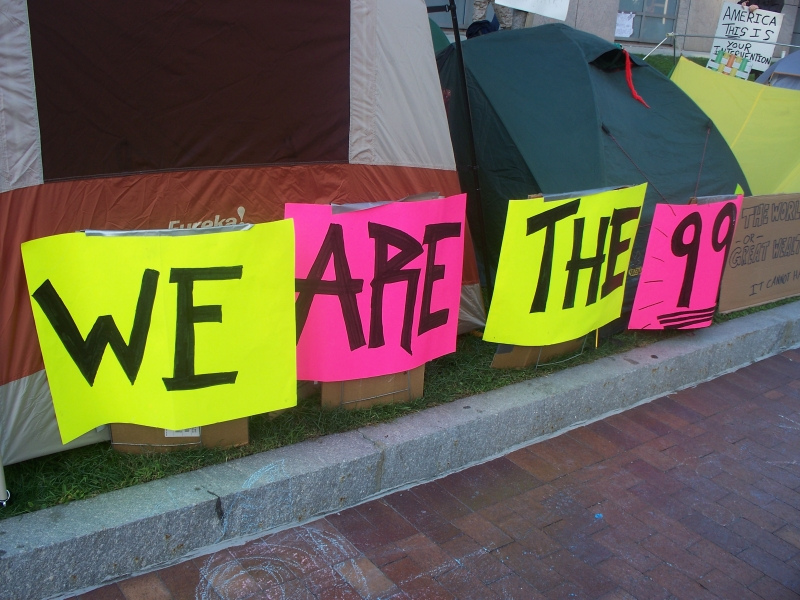Yesterday, 99% was nothing more than an answer scribbled on a homework sheet or a statistic on a survey. Today, the percentage represents the increasingly self-aware fraction of Americans subject to the economy’s exploitation.

In recent months, “we are the 99%” has captured the attention of the media and the minds of modern Americans. The phrase has dominated tattered cardboard signs in fresh red paint; summoned uncountable, curious fingers to the keyboard; and more importantly, inspired 99%-ers to physically “occupy” economic hotspots such as Wall Street and Dewey Square.
On Wednesday night, five Boston University professors shed light on the Occupy movement and its related values, issues and social implications at the BU Occupies Boston Teach-In. Professors contextualized the social uprising in a series of original lectures in an effort to contribute a piece to the bigger picture of the movement—a picture that future students will flip to in their history textbooks.
Professors approached the discussion, hosted by BU Occupies Boston, from various directions, and met at the middle at the end of the night for a question and answer session. Through utilizing metaphors, illustrating statistics, comparing economies and referencing major social movements—professors Susan Lee, Ruha Benjamin, David Lyons, Walter Fluker and Cathie Jo Martin provided rich food for thought.
CGS social science professor Susan Lee kicked off the series with her talk on the rising inequality that has created major economic and ideological problems—problems that challenge the long-held American ideals of equity, fairness and equal opportunity.
Lee cited various statistics and displayed graphs illustrating the huge disparity of American wealth to insure the audience’s digestion of the harsh numbers.
CAS sociology professor Ruha Benjamin passionately placed the Occupy movement in context by utilizing original metaphors for social change. Her most intriguing metaphor equated America’s democratic society with a plastic-covered sofa.
“Public life is covered by mass-produced plastic that is preserving an ideal; awaiting use at some later date when someone important enough comes along,” Benjamin articulated. “So much of the civic sphere is for show.”
She said that “O.G. occupiers” (original gangster occupiers) such as Rosa Parks and modern occupiers have successfully zipped back at the plastic of democracy by working toward change in public settings: occupiers have put the civic sphere to use.
Walter Fluker, professor at the School of Theology, provided another awe-inspiring take on the modern social uprising. Fluker compared the arrival of the Occupy movement to the experience of waking up to a dream.
“All dreams and visions of waking up to a better world have their strengths and weaknesses,” Fluker said. “The challenge for all 21st century leaders is to stay awake.”
He said that society has been in a deep sleep, and the Occupy movement has brought a revolution of consciousness, rage and potential for deeper global connections and change.

According to Fluker, the occupiers need a face to keep their movement awake.
“Social movements, like people, have faces,” Fluker said. “We are connected to others, and in order to be fully human and ethical, we must face each other.”
He cited ethical leaders Betty Friedan and Gloria Steinem as the faces behind the women’s movement.
So now the question remains—who will rise to the surface in the crashing waves of occupiers? Whose face will grace the glossy pages of those future textbooks, and whose voice will keep the 99% awake?
To learn more about BU Occupies Boston, follow the group on twitter @BUOccupyBoston and visit their Facebook page at https://www.facebook.com/groups/buoccupiesboston/.

